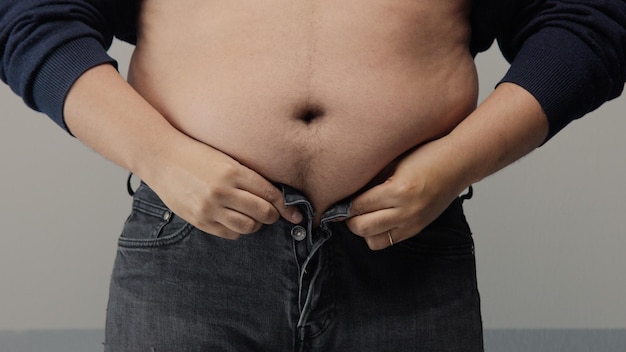
If you’re looking to lose weight, you might think counting calories and eating less is the way to go. However, as personal trainer Terry Fairclough points out, it’s not that simple. There are many opinions on what works best for weight loss—should you count calories, go low fat, low carb, or high protein? Should you fast or eat small, regular meals?
While cutting calories drastically can lead to weight loss, it doesn’t necessarily mean you’re shedding fat, which is usually the goal. Many Western diets are larger than needed, so a slight calorie deficit might be beneficial, but undereating isn’t the answer. Your body uses glucose from carbohydrates as fuel, storing excess glucose in muscles and the liver as glycogen. Each glycogen molecule carries water with it, so when you reduce calories, you’re likely losing stored carbs and water—not fat.
A long-term calorie deficit causes your body to panic, conserving fat and breaking down protein. Proteins are biologically active, meaning they help burn fat even at rest, so consuming enough calories from all macronutrients (fats, carbs, and protein) is crucial. Fat is also essential; it provides more energy than protein or carbs and is stored within muscles for exercise fuel. Without enough fat, you won’t have the energy to burn the fat you wish to lose.
Cutting calories too much can lead to nutrient deficiencies, affecting your immune system, liver, and digestion. Health problems linked to undereating include fatigue, malnutrition, osteoporosis, depression, and fertility issues. It also stresses the body, raising cortisol levels and potentially leading to weight gain due to metabolism slowdown and increased fat storage, particularly around the belly.
Moreover, insufficient calorie intake may impact your ability to digest and absorb essential nutrients, affecting your workouts and results. Sleep can suffer too, as low blood sugar levels trigger stress hormones that can disturb your rest. Poor sleep undermines liver detoxification, immunity, and work productivity, possibly leading to weight gain.
While some bodybuilders may restrict calories to get lean, this can lead to illnesses if not managed correctly. Eventually, cutting too many calories can harm your metabolism, making it seem impossible to lose weight. Any excess intake might be stored as fat due to a ‘famine mode’ triggered by constant calorie restrictions.
Ultimately, it’s important to consume the right amount of calories, carbs, fats, and proteins suited for your body type, goals, activity level, and other factors. Fairclough’s Your Body Programme (YBP) helps determine these needs through a specific calculator.
The program encourages a balanced diet that doesn’t restrict calories, suggesting that increasing calorie intake can help fat loss. Aim to eat lean proteins like beef, chicken, eggs, and fish, as well as pulses, legumes, tofu, and tempeh for vegans. Include healthy carbs from fruits, vegetables, sweet potatoes, quinoa, and whole grains, along with healthy fats like avocados, nuts, seeds, and olive oil.
Terry Fairclough, co-founder of Your Body Programme, emphasizes the importance of keeping your body healthy and nourished for optimal function. With his program, which avoids calorie restriction, increased calorie intake has been shown to aid in fat loss.